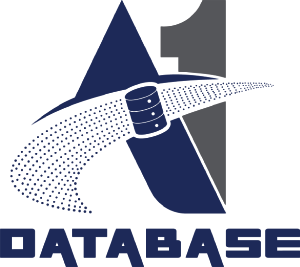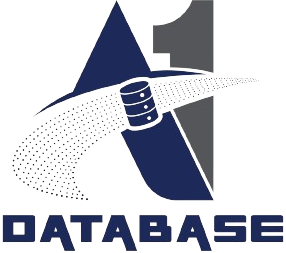- December 4, 2024
- by Admin
- Web Scraping
In today’s digital landscape, Web Scraping Customized Ecommerce Product Price and Quantity Comparison has emerged as a critical resource for consumers seeking the best possible deals. This is applicable to both individual consumers and businesses in sectors such as e-commerce, market research, and inventory management. For companies competing in online marketplaces, having accurate and up-to-date information on product pricing and availability is essential for remaining competitive. Certain manufacturers may produce items exclusively for specific websites, opting not to sell them on other platforms. This tactic may be driven by exclusive agreements, marketing partnerships, or distribution deals with particular e-commerce sites. Consequently, these products are only accessible on the designated website, which limits their availability on competing platforms and creates a unique market offering. Web scraping is a powerful tool for extracting such data in a customizable and scalable manner.
This article examines the application of Customizable E-commerce Data Scraping for tailored comparisons of product prices and quantities, focusing on the case of two major e-commerce platforms, Amazon and Flipkart. It will investigate the variations in product availability and quantity that may arise between these sites, as well as how businesses can leverage Product Data Extraction Customization to derive insights and make well-informed decisions.
Through the use of web scraping, organizations can customize their data extraction methods to focus on particular products, facilitating ongoing observation of market trends, price changes, and inventory levels. This strategy empowers businesses to respond swiftly and maintain a competitive edge in a rapidly evolving digital marketplace.
The Fundamental Necessity of Price and Quantity Comparison in E-commerce
Price comparison websites and e-commerce aggregators are essential tools for consumers, facilitating informed decision-making by providing price information from multiple retailers. However, for businesses, the task of obtaining real-time, customized data from sources such as Amazon and Flipkart demand a more sophisticated and tailored methodology. This necessity emphasizes the importance of Personalized Product Data Scraping in today’s e-commerce sector.
- Competitive Pricing: Staying informed on competitor pricing enables businesses to adapt their pricing strategies to stay competitive. Through Personalized E-commerce Scraping for Amazon and Flipkart, businesses can dynamically track changes, ensuring they offer attractive prices and remain appealing to consumers.
- Stock Monitoring: Real-time tracking of inventory and quantity availability across platforms aids businesses in understanding demand and supply trends. With Customizable Product Data Collection, companies can stay updated on fluctuations in stock levels, helping them adjust their inventory and avoid stockouts or overstocking.
- Market Analysis: By examining variations in price and quantity, businesses can uncover market gaps and identify emerging opportunities. Customized Flipkart Product Data Collection provides deeper insights, enabling firms to tap into niche markets or underserved segments and stay ahead in a competitive environment.
- Enhanced Customer Experience: Giving customers real-time insights on product availability, pricing, and deals across different platforms builds trust and improves the shopping experience. Customized data collection from diverse sources allows businesses to present timely and relevant information, which helps build customer loyalty.
Customized web scraping techniques provide a scalable solution to extract data as needed. With Personalized Product Data Scraping, companies can capture relevant data, make informed decisions based on accurate, real-time information, and achieve competitive advantages in an ever-evolving digital marketplace.
Considering these objectives, customized web scraping techniques can help gather data from diverse sources in real time.
Exploring Web Scraping and Its Applications within the E-commerce Industry
Web scraping is an automated process designed for the extraction of data from online sources. This technique can be customized to target specific aspects such as product prices, quantities, and other relevant information according to a company’s specifications. By utilizing web scraping tools, firms can extract essential data from competitor websites like Amazon and Flipkart, thereby enhancing their strategies for pricing, inventory management, and marketing.
Examples of Customizable Data in E-commerce Scraping:
- Product Price: Real-time price updates and historical price tracking.
- Quantity and Availability: Information on stock status (in stock, out of stock, limited stock).
- Product Variants: Details on variations like size, color, or pack quantity.
- Discounts and Offers: Information on ongoing discounts, bundle deals, or flash sales.
A Comparative Analysis of Product Availability and Quantity Variations between Amazon and Flipkart
Both Amazon and Flipkart are major contenders in the Indian e-commerce industry, often providing similar product lines. However, variations in product availability and stock quantities are frequently noted. To showcase the utility of web scraping for customized price and quantity comparisons, we will review a few pertinent scenarios.
- Different Availability Across Platforms:Some products listed on Amazon may not be available on Flipkart, or vice versa. For example, a specific mobile phone model may be available on Amazon with multiple storage variants, but Flipkart may only have limited options for the same product. This availability difference could be due to supplier agreements, stock limitations, or exclusive sales arrangements.
- Variation in Quantities and Packaging:The same product may be available in different quantities or packaging on Amazon compared to Flipkart. For instance, a famous brand of olive oil might be sold in 500ml bottles on Amazon and 1-liter bottles on Flipkart. Quantity variations can impact customer purchasing decisions, making it essential for companies to understand and analyze these differences.
- Price Discrepancies Due to Offers and Discounts:Seasonal sales, promotional discounts, and platform-exclusive deals can lead to considerable price variations between Amazon and Flipkart. A high-demand product, like a smartwatch, may have a temporary discount on Amazon that is not mirrored on Flipkart, or vice versa. Businesses can keep track of these discrepancies using web scraping and adjust their pricing or marketing strategies accordingly.
In these scenarios, a web scraping service can play an integral role in collecting price, quantity, and availability data across platforms and providing a structured dataset for analysis.
Exploring How Web Scraping Facilitates Customized Price and Quantity Comparisons
The web scraping procedure encompasses multiple stages that assist businesses in progressing from preliminary planning to data extraction and ultimately to comprehensive analysis. Below is an outline of how a web scraping framework can be employed for Customized Product Price Comparison Data Scraping.
Step 1: Identifying Target Data
The initial phase involves the precise identification of the product categories and attributes that need to be scrapped. For example, a company monitoring electronics might focus on categories such as “smartphones” or “smartwatches,” along with attributes like price, available quantity, and seller information on platforms like Amazon and Flipkart. This step is essential for Custom Amazon Product Data Scraping, as targeting specific data points guarantees the acquisition of relevant and actionable insights.
Step 2: Choosing Web Scraping Tools and Techniques
Once the target data has been established, the subsequent phase involves the selection of appropriate tools and methodologies. A range of scraping tools, including custom Python scripts and sophisticated web scraping services, can be utilized to extract data from e-commerce platforms. Libraries such as Beautiful Soup and Scrapy enable organizations to develop bots that traverse the pages of Amazon and Flipkart, gathering information such as pricing, stock levels, and various product characteristics, which is essential for Personalized Amazon Data Mining.
Step 3: Extraction of Data
Once scraping scripts are set up, they can automatically navigate product pages on Amazon and Flipkart, gathering real-time data at scheduled intervals. The types of data collected often include:
- Current product price
- Availability status and quantity
- Product variants and packaging details
- Date and time of extraction
This enables Customized Product Price Comparison Data Scraping that keeps companies updated on competitive changes.
Step 4: Data Cleaning and Structuring
Once the data has been extracted, it often requires thorough cleaning and standardization to render it meaningful and comparable. For instance, discrepancies may arise from the differing labels or categories used by Amazon and Flipkart for product quantities, which must be addressed. By resolving these inconsistencies, companies can establish a clean dataset that enhances accurate analysis and supports seamless Customized Flipkart Product Data Extraction.
Step 5: Data Storage and Analytical Review
The final phase involves the storage of the organized data in a database, which allows for easy access during analysis. With this cleaned dataset, businesses can monitor pricing trends, identify inventory gaps, and respond swiftly to market changes. This configuration enables organizations to capitalize on insights from Extracting Quantity Comparisons for Customizable Products, promoting proactive and data-driven decision-making.

